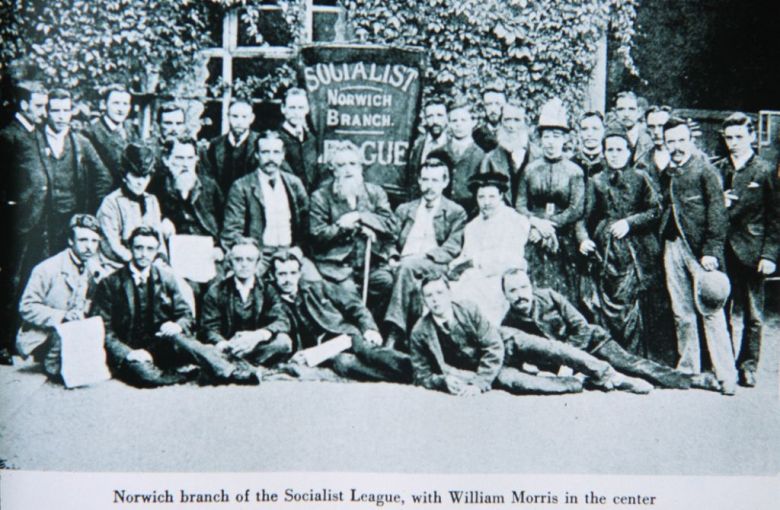The TOS salutes its founder Annie Besant, the second International President of the Theosophical Society and founder of the Theosophical Order of Service, was born on October 1, 1847. It is traditional amongst Theosophists to mark her birth anniversary, taking time to recall all she did for the theosophical movement and for the cause of freedom and justice in many domains. Here we bring some photos illustrating Mrs Besant’s political activism, considered radical at the time and now regarded as being socially enlightened. Mrs Besant stands as an inspiration to us all and we salute her memory on the occasion of her birthday. |
|
|
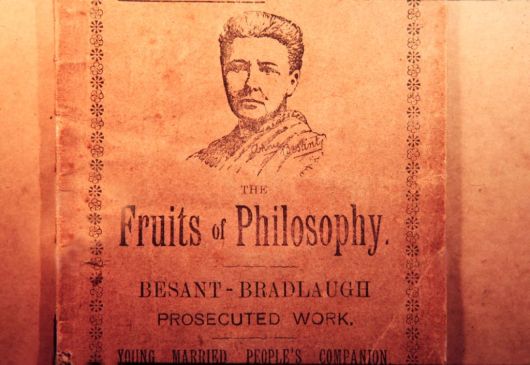 |
Here we see the cover of a book on birth control by Charles Knowlton that Mrs Besant and Charles Bradlaugh published in 1877. The book argued that the working classes could never emerge from poverty until they could limit the number of their children. This caused a real scandal, especially amongst the religious establishment, and the two publishers were put on trial. |
|
One of the few women in this photo, Mrs Besant can be seen seated in white amidst colleagues of the British socialist movement. Her fiery speeches on social justice attracted very large audiences. |
||
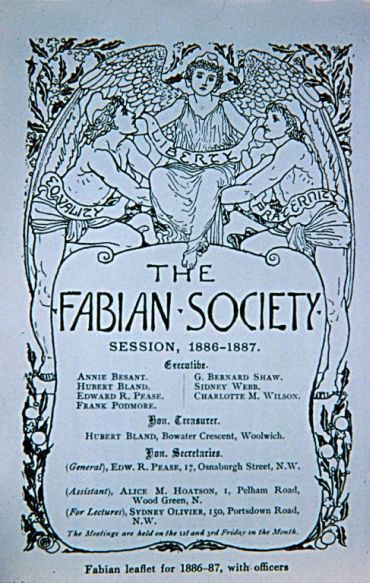 |
Annie was amongst a great number of prominent thinkers who joined the Fabian Society, whose purpose was (and still is) to advance the principles of democratic socialism through gradual and reformist, rather than revolutionary, means. |
|
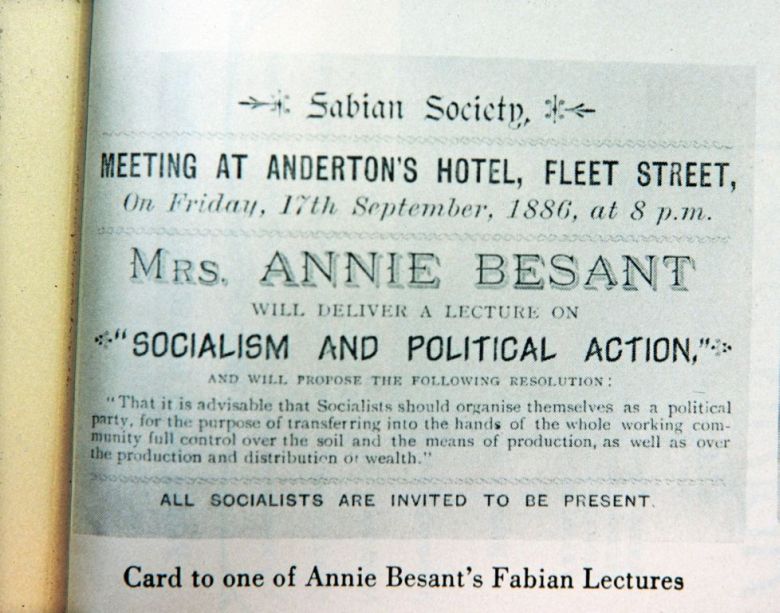 |
||
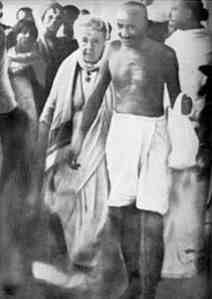 |
Mrs Besant was active in the struggle for Indian independence. She became an early member of the Indian National Congress. In 1916, she launched the Indian Home Rule League. In 1917 she was arrested for protesting against British rule. This led to a wave of protests from different Indian groups. She was released to national acclaim. For a year she was made president of the Indian Congress, preceding leaders such as Gandhi and Nehru. |
When Mrs Besant became familiar with the hazardous working conditions of matchstick makers in England, she published the facts and called for a boycott of Bryant and May’s matches. In describing her contact with the match-girls, she wrote this: " ‘It is time someone came and helped us,’ said two pale-faced girls to me; and I asked: ‘Who will help?’ Plenty of people wish well to any good cause; but very few care to exert themselves to help it, and still fewer will risk anything in its support. ‘Someone ought to do it, but why should I?’ is the ever re-echoed phrase of weak-kneed amiability. ‘Someone ought to do it, so why not I?’ is the cry of some earnest servant of man, eagerly forward springing to face some perilous duty. Between those two sentences lie whole centuries of moral evolution." |
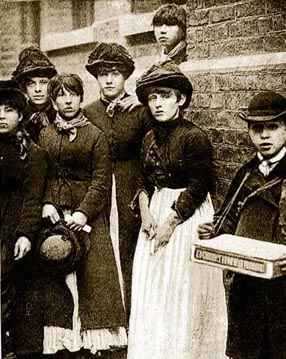 |

